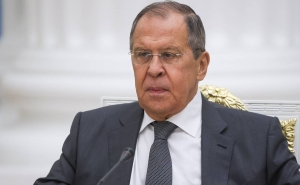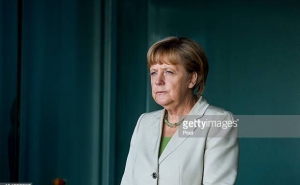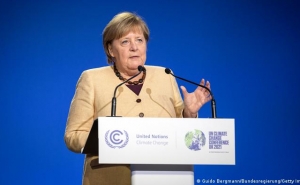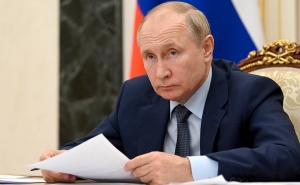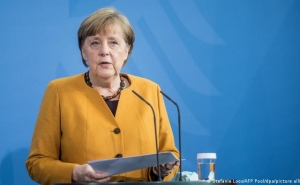Greek Prime-Minister to EU: ''Re-read Hemingway’s masterpiece, ''For Whom the Bell Tolls''''

The European Union comes to face ''the Greek problem'' over and over again. Despite the years of different discussions and negotiations, there is yet no concrete way to get out of this situation. Europe seems to be tired and fed up with Greece, which seems to be offended from the so-called ''indifference'' of Europe.
According to the Prime-Minister of Greece Alexis Tsipras, the issue of Greece does not only concern Greece, rather, it is the very epicenter of conflict between the two diametrically opposing strategies concerning the future of European unification. The first strategy, as it is written in the official website of the European Parliament, aims to deepen European unification in the context of equality, solidarity and democracy between its people and citizens, and the other one calls for rupture and division. The question is which strategy will prevail in the end.
However, the leaders of Germany and France, along with Greece's international creditor institutions, agreed late on Monday to work with "real intensity" in the coming days to try to reach a deal with the Greek government that could prevent it defaulting on its debt, as Greece is still a cause for concern for markets.
The matter is that Greece faces a 300 million euro payment to the International Monetary Fund (IMF), but there are doubts the country can honor the debt without further financial aid.
Europe's top policymakers, including German Chancellor Angela Merkel, the President of France Francois Hollande, and the head of the European Central Bank Mario Draghi, held an emergency summit in Berlin the other day to discuss a deal, as they see the consequences of a Greek bankruptcy "gigantic" for Europe, The Telegraph reports.
On June 3, Tsipras met the European creditors, namely the head of the European Commission Jean-Clode Juncker, during which the Greek government introduced its proposals about the reforms to be made. Despite the four-hour discussions, no tangible results were recorded and it was declared that another meeting will take place in the coming days.
As for the European side, some experts notice that though some efforts still have to be made "on both sides'', the discussions at this stage seem to be fruitful and there is a real progress with a better understanding by both the Greek government and its creditors.
According to Eurostat’s data, Greece became the EU country with the highest index of social inequality, and over the past five years the unemployment rate climbed to 28% (60% for young people), average income decreased by 40%. The new Greek government’s main goal during these last four months has been to put an end to this vicious cycle, an end to this uncertainty.
In an interview with the French ''Le Mond'' Greece’s Prime-Minister Alexis Tsipras declared that a final solution to the Greek problem is now even more mature and more necessary than ever.
''If some, however, think or want to believe that this decision concerns only Greece, they are making a grave mistake. I would suggest that they re-read Hemingway’s masterpiece, ''For Whom the Bell Tolls'', Tsipras said.
Anyway, should we call it a ''cash for reforms'' or some other name, today, Europe has the opportunity to contribute to the rapid recovery of the Greek and European economy. And according to the Greek side, the EU should end the Grexit scenarios, which prevent the long-term stabilization of the European economy and may, at any given time, weaken the confidence of both citizens and investors in their common currency.
Other materials on this subject
- Greece Emerges from Eurozone Bailout Programme The economy has grown slowly in recent years and is still 25% smaller than when the crisis began.
- Greece Can be Competitive Once Makes Reforms: Schaeuble Greece can have a competitive economy once it makes reforms agreed with its euro zone creditors, German Finance Minister Wolfgang Schaeuble said on Monday.
- Greek Unemployment Rises to 23.4 Percent in August, Eurozone Highest Greece's unemployment rate has come down from record highs but remains more than double the euro zone's average of 10 percent in August.
- Eurogroup to Disburse 10.3 bln Euros to Greece The Eurogroup also recalled the medium-term primary surplus target for Greece at 3.5% of GDP as of 2018 and underlined the "importance of a fiscal trajectory consistent with the fiscal commitments under...
- 48-Hour Strike Began in Greece Public transport workers joined the strike. Today and on Saturday in the Greek capital metros, trolley buses and trams will not work.
Other materials on this subject
- The European Union Has Decided to Abandon Russian Coal In the Summer Many countries have joined these sanctions, even if this necessarily implies economic costs for ourselves," he noted.
- Germany Faces Steep Recession if Russian Oil and Gas Halted, Bank Lobby Says "The situation would be even worse if imports or supplies of Russian oil and natural gas were to be halted. A significant recession in Germany would then be virtually unavoidable," Sewing told journalists.
- EU Leaders Agree on Joint Gas Purchases Last year, the European Commission proposed to the EU countries a system of joint purchases of strategic gas reserves as a way to provide a buffer against possible supply disruptions. Fears of supply disruptions...
- European Union Launches “Team Europe” Package to Support Partner Countries with More than €20 Billion: Reuters Most of the money is being reallocated from other, less urgent EU foreign aid schemes in the EU’s common budget, but Borrell said the European Investment Bank, the European Bank for Reconstruction and...
- The Guardian: EU Leaders Clash Over Economic Response to Coronavirus Crisis Meeting via a video link, the EU’s 27 leaders papered over deep divisions by agreeing that another fortnight was needed to discuss ambitious economic recovery plans. After a testy debate over "coronabonds",...
-
 17:08
17:08The regular session of the Anti-corruption Policy Council takes place in Jermuk
-
 15:05
15:05The Prime Minister sends congratulatory messages to the supreme leader of Iran and the President of Iran
-
 11:11
11:11Armenia sends earthquake aid to Turkey
-
 10:43
10:43Commemoration of the Pontiff St. Sahak Partev
-
 09:16
09:16Some roads are closed and difficult to pass in Armenia
-
 19:55
19:55Phone conversation of the Foreign Minister of Armenia with the U.S. Assistant Secretary of State for European and Eurasian Affairs
-
 18:30
18:30Prime Minister Pashinyan and President Khachaturyan meet
-
 18:20
18:20Ararat Mirzoyan with Co-Chairman of the OSCE Minsk Group of France Brice Roquefeuil
-
 17:01
17:01Humans could land on Mars within 10 years, Musk predicts
-
 16:45
16:45France, US urge 'immediate' end to Nagorno Karabakh blockade
-
 16:01
16:01Blockaded Nagorno Karabakh launches fundraiser to support quake-hit Syria
-
 15:59
15:59Earthquake death toll in Turkey rises to 18,342
-
 15:43
15:43Ararat Mirzoyan Held a Telephone Conversation with Sergey Lavrov
-
 15:06
15:06French president rules out fighter jet supplies to Ukraine in near future
-
 14:47
14:475 Day Weather Forecast in Armenia
-
 14:44
14:44President Vahagn Khachaturyan wrote a note in the book of condolences opened in the Embassy of Syria in Armenia
-
 14:20
14:20Azerbaijan’s provocations impede establishment of peace and stability – Armenian FM tells Russian Co-Chair of OSCE MG
-
 12:57
12:57France representation to OSCE: Paris calls on Azerbaijan to restore freedom of movement through Lachin corridor
-
 11:40
11:40Command of Kosovo forces highly appreciated preparation of Armenian peacekeepers
-
 10:16
10:16The United States withdrew from sanctions against Syria for six months the provision of assistance after the earthquake
day
week
month
Humidity: %
Wind: km/h


